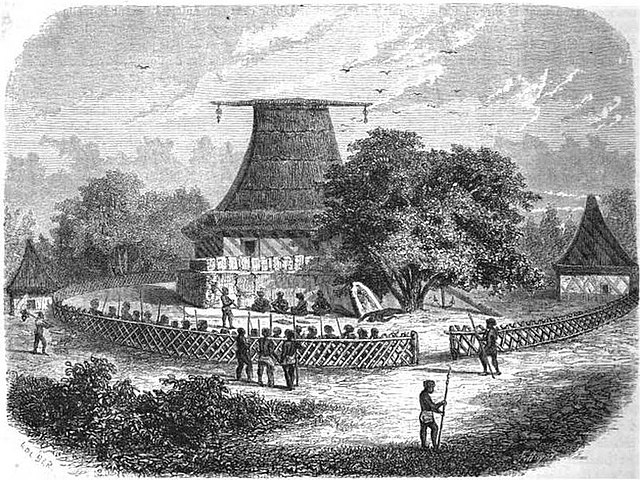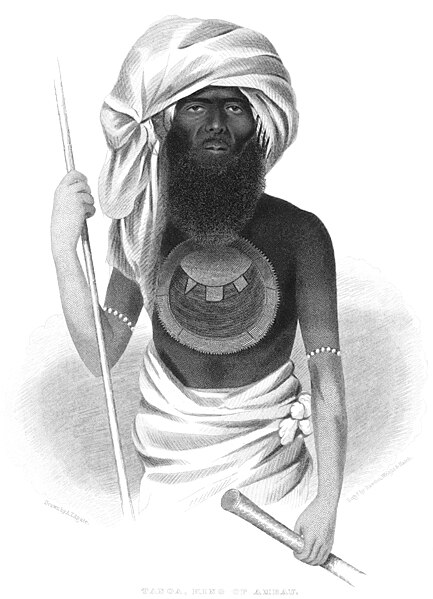A punitive expedition is a military journey undertaken to punish a political entity or any group of people outside the borders of the punishing state or union. It is usually undertaken in response to perceived disobedient or morally wrong behavior by miscreants, as revenge or corrective action, or to apply strong diplomatic pressure without a formal declaration of war. In the 19th century, punitive expeditions were used more commonly as pretexts for colonial adventures that resulted in annexations, regime changes or changes in policies of the affected state to favour one or more colonial powers.
The American punitive expedition against Malolo, Fiji in 1840 by Alfred Agate
The Bombardment of Algiers by the Anglo–Dutch fleet in 1816 to support the ultimatum to release European slaves.
The French Navy raids San Juan de Ulua (Mexico) during the Pastry War (1838).
Fiji, officially the Republic of Fiji, is an island country in Melanesia, part of Oceania in the South Pacific Ocean. It lies about 1,100 nautical miles north-northeast of New Zealand. Fiji consists of an archipelago of more than 330 islands—of which about 110 are permanently inhabited—and more than 500 islets, amounting to a total land area of about 18,300 square kilometres (7,100 sq mi). The most outlying island group is Ono-i-Lau. About 87% of the total population of 924,610 live on the two major islands, Viti Levu and Vanua Levu. About three-quarters of Fijians live on Viti Levu's coasts, either in the capital city of Suva, or in smaller urban centres such as Nadi or Lautoka. The interior of Viti Levu is sparsely inhabited because of its terrain.
A Fijian mountain warrior. Photograph by Francis Herbert Dufty, 1870s
Bure-kalou or temple, and scene of cannibalism
Levuka, 1842
Ratu Tanoa Visawaqa







